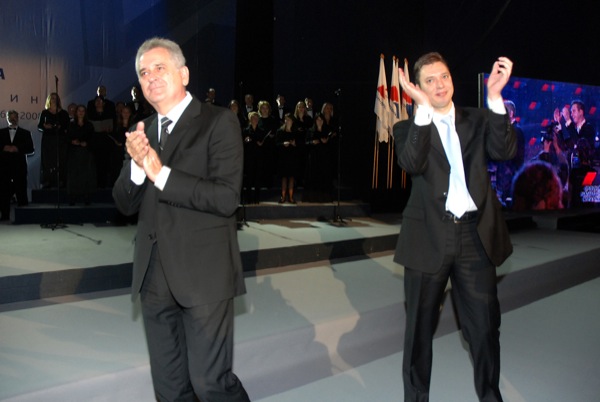

The election’s outcome means that Aleksandar Vučić, the SNS leader and former deputy prime minister, has turned overnight from an informal centre of power into an undisputed leader of Serbia. He has concentrated power at a degree unprecedented since the tenure of Slobodan Milošević in the 1990s. Vučić’s approval ratings are sky high. The Democrats are in disarray, having also been routed in their former strongholds such as the city of Belgrade, in local elections that took place in parallel to the general poll. Dačić is no longer needed in the cabinet. Nationalist opponents such as Democrat party leader Vojislav Koštunica, once the prime minister, were sent into early retirement after failing to pass the 5 percent threshold. SNS is just ten seats short of the two-thirds majority needed to change the constitution.
Even though Vučić is now comfortably ensconced in authority, he will not have an easy ride in the four years – or fewer – to come. SNS promised to uproot corruption, boost employment (20 percent of the Serbian population are jobless), and bring in foreign investment and loans, notably from the Gulf. But now that the election is over, grim reality must be faced. The incoming cabinet will have to restructure and put up for sale a number of loss-making public companies piled with debt, as well as fire up to 60,000 workers. If no junior partner joins the cabinet, Vučić will have to take all the heat for this unpopular initiative. This is reason enough to form a coalition. Tadić’s NDS is one option for partnership, now that former minister for finance and United Regions of Serbia party leader Mladjan Dinkić, who would have been the default choice, is out of the legislature.
The European Union need not worry. Vučić is committed to normalisation in Kosovo. He was by Dačić’s side at the key junctures in the talks mediated by Catherine Ashton. The new commander-in-chief will pilot as best he can the accession negotiations with the EU that kicked off in January. But the take-away from Sunday’s elections is that politics in Belgrade does not revolve around Kosovo or even Brussels. Serbia’s trajectory under Vučić, however, will no doubt have an impact our thinking about the EU’s vaunted “transformative power”. The question is whether he will use his immense clout to revamp the economy and improve governance, or whether he will simply go about building a personality-driven regime in the mould of Hungary’s Viktor Orbán or Nikola Gruevski in Macedonia. Either way, the EU will have to live with Serbia’s new old master, who has demonstrated, once more, his ability to deliver.